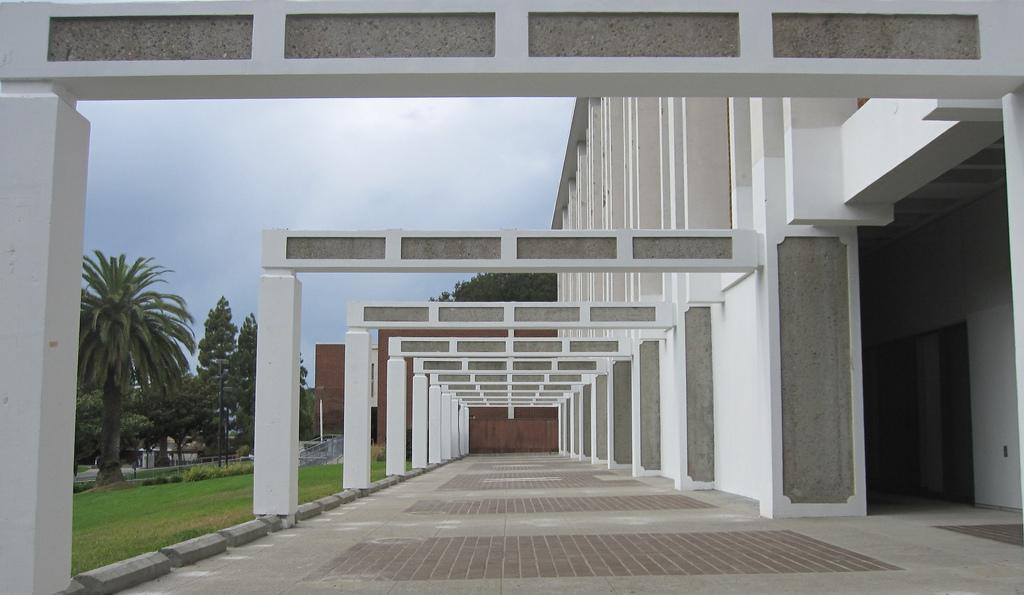The Contra Costa Community College district is working on a plan to refit buildings at Contra Costa College and buildings at the district offices that are at risk for earthquake damage, according to a report released this month.
Several buildings around the district have fallen out of the Field Act/Building Code since their construction and are at risk for earthquake damage, including much of Contra Costa College, which lies on top of the Hayward fault line in San Pablo.
A recent report given to the Governing Board on October 13 explained the necessity for the refit plan. The report cites a study commissioned in 2006, which rated the square footage of Contra Costa College on a seven-level rubric of seismic risk acceptability. The study found that 76 percent of CCC was level IV or higher.
On the rubric, level I is the safest. Level IV is ranked as having a safety level of “questionable,” and a risk to life of “moderate.” Level VII, the highest on the scale, has a safety rating of “unacceptable” and has a risk to life rating of “imminent threat to occupants.”
Ray Pyle, the district’s chief facilities planner, has been putting together what he calls the seismic risk mitigation implementation plan. Pyle indicated that much of the plan was simply streaming the accessibility of material already on hand.
“What I’m trying to do with that plan,” Pyle said, “is to take a lot of stuff from a lot of different places – all the studies – and make a complete plan for all the buildings at the Contra Costa College and the district office. So you don’t have to go to a lot of different places to find out what we’re going to do about seismic safety, you can just go to one place.”
Although a significant portion of the buildings are above level IV in the report, Pyle stressed that this has less to do with poor construction than it does with advances in construction techniques.
“It’s just that there’s been newer knowledge in seismic strengthening since the buildings were built,” Pyle said.
Pyle explained that since the 2006 study, the district has already done several seismic refits, including CCC’s library and liberal arts building.
He was unable to specify how long the full refitting will take.
“With respect to time, it’s really impossible to say. In some cases we may go to state chancellor’s offices to ask for funding to do some of these projects, and there’s just no way of telling if the state will fund them or when they’ll fund them. So the timing is really difficult to find out,” he said.
DVC has not had as many seismic studies done as CCC, but doesn’t need them as much either, said Guy Grace, DVC’s Buildings and Grounds Manager.
“I don’t know of any official study that’s been done, because we’re not that close to a fault line,” Grace said, “but I know that any of the buildings built on the campus are built to a very vigorous standard, because we are a public institution.”
“The only facilities that have a more stringent set of codes and regulations [than campuses] are hospitals,” he added.
The issue of the district’s seismic refitting will be discussed further at the Nov. governing board meeting.
Contact Scott Baba at [email protected]






































































